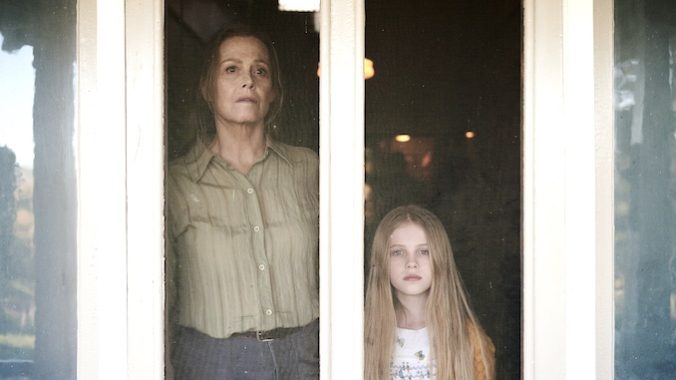Despite Uneven Pacing, Prime Video’s The Lost Flowers of Alice Hart Remains a Moving Limited Series
Photo Courtesy of Prime Video
On a scale of “The Tiny Things We Know To Be Small” to “The Darkest Wife” (aka, The Amelia Elizalde Scale of Contemporary Book Titles), Australian novel “The Lost Flowers of Alice Hart” ranks somewhere squarely in the middle. Now adapted into a Prime Video miniseries, with the book’s 400 pages translating to a very leisurely seven hours, we now have a new series that hopes to attract an audience with a fictional character’s full Christian name. Who is this mysterious protagonist, and what happened to her flowers, whether they be literal or metaphorical? (Spoiler: they’re both.) The problem is, this deep into the Peak TV War, “from the best-selling novel” doesn’t exactly stick out in a landscape where streamers have snatched up every book about listless, traumatized young women—especially when it’s not even the only new series with a fictional name in its title Prime have launched in the past month.
Being glib about Alice Hart would be a disservice, not just because of its heavy, serious subject matter, but because it’s a competent, respectable adult drama that is, for the most part, worth sinking into. Alice (Alyla Browne) is a young girl living in isolated Australia with her father Clem (Charlie Vickers) and pregnant mother Agnes (Tilda Cobham-Hervey). Over a gentle, but increasingly distressing opening sequence, we learn the cost of the Harts’ isolation—Clem is a violent, controlling husband and father, forbidding his family to leave his sight should the physical and emotional scars of his abuse become clear to outsiders. Series director Glendyn Ivin (The Cry) has a good eye for delicate, expressive moments that lay bare the curiosity and confusion that rule Alice’s life, grounding the camera in the young girl’s perspective and letting the clear signs of Clem’s abuse linger in the edges of the frame.
After Alice triggers a house fire (accidentally? arson-ally?) that ends the lives of her two parents, Clem’s estranged mother June (Sigourney Weaver, fulfilling the obligatory “American actor leading an international TV production” role) re-enters the picture. She takes custody of the granddaughter she’s never met and ushers her to Thornfield, a horticultural commune she leads that’s populated by women who have escaped difficult and dangerous pasts and relationships.
It’s here that doubts and fears start swimming in—after a brilliant opening act, Alice Hart takes too long to introduce stakes and agency into the lives of Alice or those invested in her wellbeing. The first three episodes focus on Alice’s gradual assimilation into Thornfield, where June’s difficult nature comes clear in how she cares for her granddaughter, but the type of subtle immersion into a new rhythm of life that works wonders for novel readers doesn’t really translate for a story that needs seven individually structured units of drama.
Even when a welcome time jump and perspective shift between Episodes 3 and 4 doubles your investment in Alice’s healing journey, some of Alice Hart’s opening act troubles still remain. A reliance on flashbacks (while artfully done) interrupts the story’s pace; the choice to keep character history at arm’s length results in a series of expository info dumps in the final episodes; Alice is rendered nearly entirely passive in the finale, relegated to coming to terms with information that should inspire action and drama.
The greatest frustration with Alice Hart is not that these problems occur, it’s that they’re so intertwined with genuinely strong characters and filmmaking—specifically Sam Chiplin’s cinematography and Hania Rani’s score—that what’s good about the show is never wholly good in isolation, it’s always hampered by the same nagging, persistent problems.
-

-

-

-

-

-

-

-

-

-

-

-

-

-

-

-

-

-

-

-

-

-

-

-

-

-

-

-

-

-

-

-

-

-

-

-

-

-

-

-








































